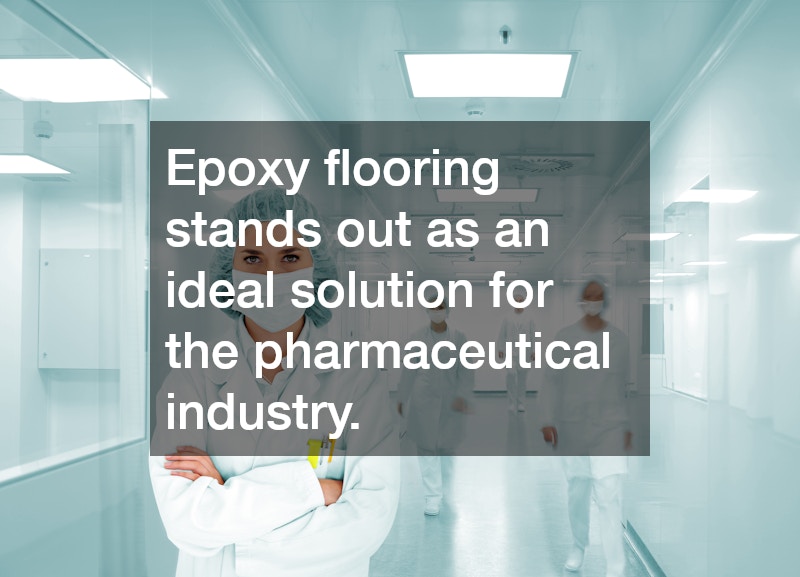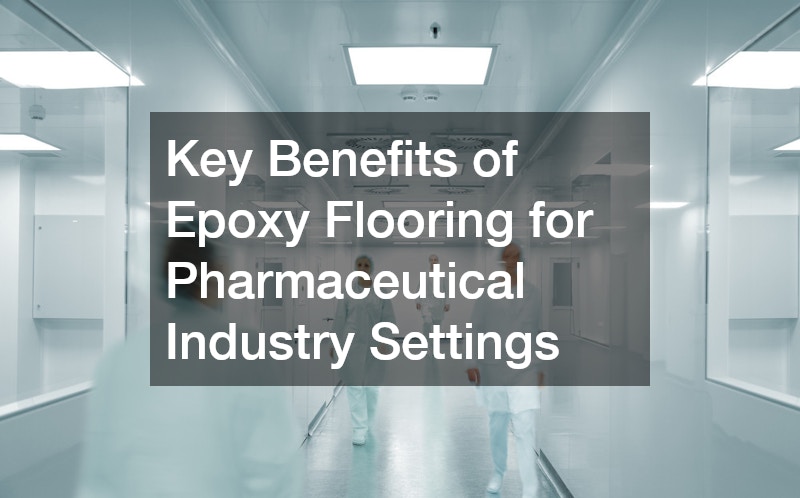In the pharmaceutical industry, ensuring a sterile and safe environment is paramount. This necessity extends to the choice of flooring, where traditional materials often fall short. Epoxy flooring has emerged as a superior option, offering a combination of durability, ease of maintenance, and sanitary benefits crucial for pharmaceuticals. In this article, we explore the key benefits of epoxy flooring for pharmaceutical industry settings, understanding why it has become the flooring of choice for many in the industry. We will delve into its distinct properties and how they cater specifically to the unique demands of pharmaceutical environments.
Durability and Longevity
One of the primary advantages of epoxy flooring in pharmaceutical settings is its unmatched durability. Epoxy floors are known for their strength and resilience, capable of withstanding high foot traffic and heavy machinery without succumbing to wear and tear. This durability extends the life of the flooring significantly compared to traditional flooring options. As pharmaceuticals often require heavy-duty operations, the long-lasting nature of epoxy floors proves economically beneficial. This reduces the need for frequent replacements, ultimately saving on costs.
Furthermore, epoxy flooring is resistant to a wide array of physical damages. Its surface is impervious to scratches, dents, and impacts that are commonplace in busy industrial settings. Unlike other flooring types that might suffer from chipping and breaking, epoxy floors maintain their integrity even under the toughest conditions. This resistance to damage ensures the pharmaceutical facility remains in top working order without interruption. The robust nature of epoxy minimizes downtime for repairs, ensuring uninterrupted operations.
Hygiene and Sterility
The sanitary benefits of epoxy flooring are crucial for pharmaceutical industry settings, where hygiene is non-negotiable. Epoxy flooring provides a seamless, non-porous surface that does not harbor bacteria or mold, ensuring a clean and sterile environment. This is especially important in facilities that produce or handle sensitive materials prone to contamination. The smooth surface also allows for straightforward cleaning, as there are no joints or seams for dirt and pathogens to hide. This contributes significantly to maintaining the strict hygiene standards required in the pharmaceutical industry.
Another key aspect of epoxy flooring’s contribution to hygiene is its resistance to chemicals. In pharmaceutical facilities, various chemicals are used for different purposes, and spills are an inevitable occurrence. Epoxy floors are resistant to most of these chemicals, preventing them from seeping into the flooring material and causing contamination or degradation. This resistance is critical to maintaining a sterile environment and ensures the floor’s appearance and integrity over time. Consequently, epoxy flooring supports the rigorous cleanliness protocols essential to pharmaceutical settings.
Moreover, the installation process of epoxy flooring contributes to its hygienic properties. The application creates a monolithic layer, bonding seamlessly with the substrate and eliminating potential crevices. This feature reduces the likelihood of microorganisms finding a place to grow, further securing the environment against potential contamination. The ease with which epoxy flooring can be sanitized makes it a practical and hygienic option for pharmaceutical production and research areas. This capability is invaluable in an industry where sterility impacts the quality and safety of the products.
Safety and Risk Management
Safety is another critical area where epoxy flooring excels, offering several features to enhance workplace safety in pharmaceutical settings. One significant benefit is its slip-resistant properties. By incorporating textured surfaces during installation, epoxy floors can significantly reduce the risk of slips and falls. This feature is essential in environments where spills or moisture can make floors hazardous. Improved traction contributes to a safer workspace, protecting employees and minimizing accidents.
Additionally, epoxy flooring enhances visibility, which is an often-overlooked aspect of safety. The reflective nature of epoxy surfaces contributes to better lighting within the facility, reducing the need for additional light sources. Improved visibility can prevent accidents by ensuring that all areas of the workspace are well-lit and visible. This aspect of epoxy flooring supports the overall safety protocols in pharmaceutical environments. It aids not only in accident prevention but also in the efficiency of daily operations.
Epoxy flooring stands out as an ideal solution for the pharmaceutical industry, offering a multitude of benefits from durability to hygiene, safety, and cost-effectiveness. Its robust nature supports the demanding operations seen in pharmaceutical settings, while its hygienic qualities ensure the adherence to stringent cleanliness standards. The safety features embedded in epoxy flooring further protect both the workforce and the integrity of the facility. Coupled with a strong financial case, epoxy flooring proves to be a worthwhile investment. Opting for epoxy flooring in pharmaceutical industry settings not only enhances operational efficiency but also supports a clean, safe, and economically viable environment.
.





